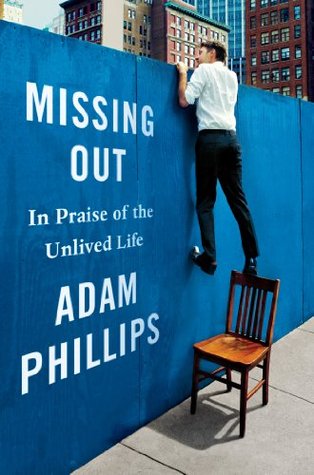More on this book
Community
Kindle Notes & Highlights
Read between
November 10 - November 10, 2023
The unexamined life is surely worth living, but is the unlived life worth examining? It seems a strange question until one realizes how much of our so-called mental life is about the lives we are not living, the lives we are missing out on, the lives we could be leading but for some reason are not.
we quickly notice as children – it is, perhaps, the first thing we do notice – that our needs, like our wishes, are always potentially unmet.
we also learn to live somewhere between the lives we have and the lives we would like.
what was not possible all too easily becomes the story of our lives. Indeed, our lived lives might become a protracted mourning for, or an endless tantrum about, the lives we were unable to live.
the exemptions we suffer, whether forced or chosen, make us who we are.
Because we are nothing special – on a par with ants and daffodils – it is the work of culture to make us feel special;
growing up is always an undoing of what needed to be done: first, ideally, we are made to feel special; then we are expected to enjoy a world in which we are not.
Childhood is a problem because of the effect it has on the adults we are able to become. No one has ever had the adolescence they should have had.
The right choice is the one that makes us lose interest in the alternatives; but we can never know beforehand which the right choice will be.
Wanting takes time; partly because it takes some time to get over the resistances to wanting, and partly because we are often unconscious of what it is that we do want.
Without frustration there can be no satisfaction.
The fact that there are frustrations seems to imply, of course, that there are satisfactions, real or otherwise. The fact of frustration has, that is to say, something reassuring about it. It suggests a future.
if someone can satisfy you they can frustrate you. Only someone who gives you satisfaction can give you frustration. This, one can say, is something we have all experienced, and go on experiencing. You know someone matters to you if they can frustrate you.
The demand for love is always a doubt about love;
you were waiting for someone but you didn’t know who they were until they arrived. Whether or not you were aware that there was something missing in your life, you will be when you meet the person you want.
There is a world of difference between erotic and romantic daydream and actually getting together with someone; getting together is a lot more work, and is never exactly what one was hoping for.
reality matters because it is the only thing that can satisfy us. We are tempted, initially, to be self-satisfying creatures, to live in a fantasy world, to live in our minds, but the only satisfactions available are the satisfactions of reality, which are themselves frustrating;
(the most satisfying pleasures are the surprising ones, the ones that can’t be engineered).
the quest for satisfaction begins and ends with a frustration; it is prompted by frustration, by the dawning of need, and it ends with the frustration of never getting exactly what one wanted. How could we ever be anything other than permanently enraged? Perhaps we are permanently enraged, taking revenge on ourselves for not being sufficient for ourselves, and taking revenge on others for never giving us quite what we want.
Learning from experience means finding ways of making your need compatible with living in the world.
were we to straightforwardly recognize the essential aspects of ourselves, it is suggested, we would not be able to bear the anxiety. Were we to see our desires all the time as they really are, we would be incapacitated. We are, in actuality, something we don’t have the wherewithal to recognize. This is the (psychoanalytic) sense in which we don’t get it because we don’t want to.
Let’s say that passivity and withdrawal become the child’s strategies of choice for avoiding the experience and expression of anger (and its feared consequences). Eventually, he may retreat to this position so automatically that even he is unaware of feeling angry inside. The defences come to replace the feeling itself and can result in character pathology
Real feeling is replaced by defences against it, and the defences come to seem to be what one is really feeling
parents are unable to get, to bear or bear with, the full range of their child’s emotional life. They don’t want to engage with it,
the parents cannot get, in the fullest sense, that the child is angry and needs to be.
recognition will inevitably be patchy, and not always felt to be sufficient. And children will always need to try to satisfy their parents, to become what they assume the parents need, and find themselves both unwilling and unable to do this. (No child ever recovers from not having cured his parents.)
Who their children fall in love with shouldn’t make too much sense to their parents.
Nothing important comes with instructions. James Richardson,
in retrospect many innovations in the arts seem to come about precisely as a result of rules being broken.
Knowing what you don’t want doesn’t mean knowing what you do want.
Auden noted: ‘Man needs escape as he needs food and deep sleep.’


